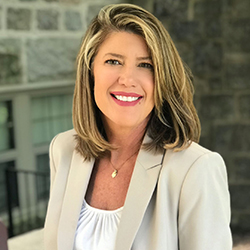While many clinical trial professionals struggle with the lack of clear career paths in the industry, there are tools, tactics, and best practices to help spot and leverage new opportunities. In this occasional series, we’ll hear from leading experts both in and outside the clinical trial industry as they offer insights on how to thrive in an ever-changing workforce.
When did accountability become a dirty word? It conjures up images of truant officers or hall monitors bent on calling out transgressors (real or imagined). However, when harnessed properly, accountability can be a powerful force for effecting positive change, says Maryellen May, CPTC, CPCC, JST-ADHD, CEO at Door 3 Coaching & Training.
“It’s such a negative word, isn’t it?” May notes. The problem is, we’ve allowed the idea to become more of a self-defense weapon and less of a strategic implement, she says. “What you want to do is to create a place where people can share ideas and have trust within each other, so that you have each other’s backs,” she adds.
“I always laugh when it comes to the word accountability because it’s so negative—to be ‘accountable.’ But, when you really think about it, [it means] to have integrity,” May says. At its core, it is a powerful concept and promise: To say you’re going to do something and then do it.
“For some reason, there’s this punishment aspect that we tie into that,” May says, “but when you flip it upside down you have people saying, ‘You know what? I’m excited to give 150% to this because I feel like I’m being fully heard and I feel like I belong, and I want to be a part of this because I have a true belief in it.’ That’s when accountability really means something.”
It’s bred deep in the bone for humans to want to be part of something bigger than the individual. Clinical trials offer fertile ground for professionals to tap into that higher calling, May says.
“Somehow, somewhere, and I don’t know if this was data driven or not, but with all the data that we have, we moved from a team-focus and mindset to an individual” focus, she says. The result? “We all became like silos” and meetings became counter-productive exercises where individuals are myopically quizzed on their own cog without enough attention on the bigger machine.
“[It’s too much about] ‘Where are you in your job? How are things going with you?’ And we used to go around the room—a lot of us still do—and touch base with everyone to see where they are” May says. The answer is to talk about the team. “When you shift from [focusing on] individuals to a team, there’s a different mindset shift. So, [in terms of] accountability, there might be times when you have a team member who is not able to do something; [accountability is] when that other team member steps up and takes over,” building a stronger esprit de corps. “We lost that feeling when we went into silos [and] the ability to see ourselves as one cohesive unit,” May says.
The best high-performing team members right now don’t see themselves as individuals—they are measured from a team perspective. There’s a team goal and a team environment. In that new team-centric environment, “people want to give above and beyond, even if they’re not compensated for it—because they believe in it, because there’s a bigger purpose,” May says.
The solution is relatively easy to see, if less simple to achieve. “There’s got to be a shift so that people are seeing a value to their team, versus a self-value, the self-identity,” May notes. “The team has to have an identity. And once you can create that, there’s much more buy-in.”
For example, winners of ACRP’s recent All-Star Challenges for sites and for sponsors and contract research organizations made a point of stressing how team identity created a new cohesion and fueled stronger performances.
May isn’t surprised those individuals thrived when coming together as a team. “I think people downplay the value of just being heard. Just the fact of working on a team where people feel fully heard” is such a powerful motivator, she says. It’s an opportunity we often miss in today’s data-driven business climate.
“We downplay the importance of communication and connection and how quickly you can create incredible teams and relationships through simple acts of listening and empathy and understanding,” May says. “Too often those words aren’t part of the working vocabulary.”
Author: Michael Causey



